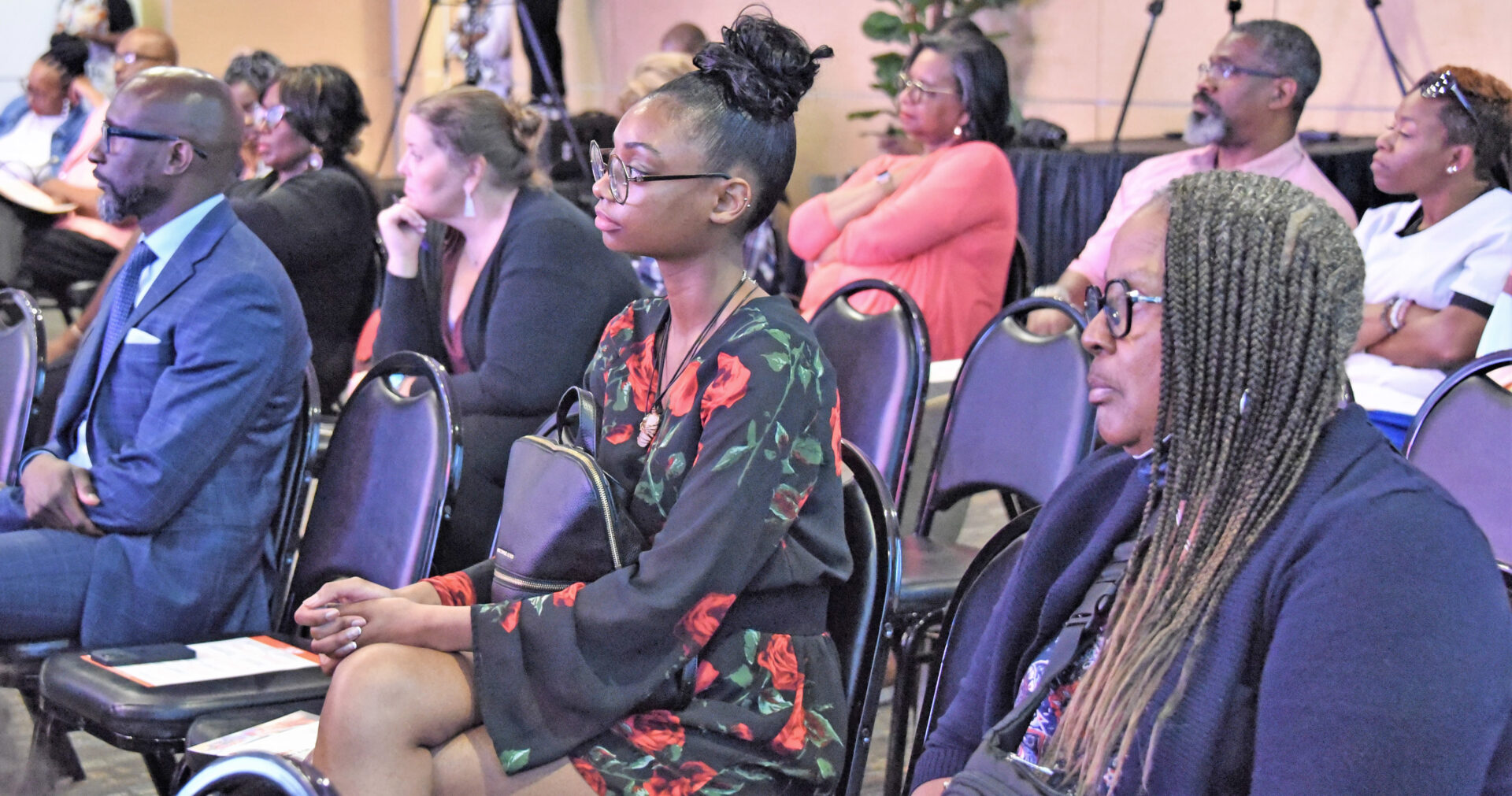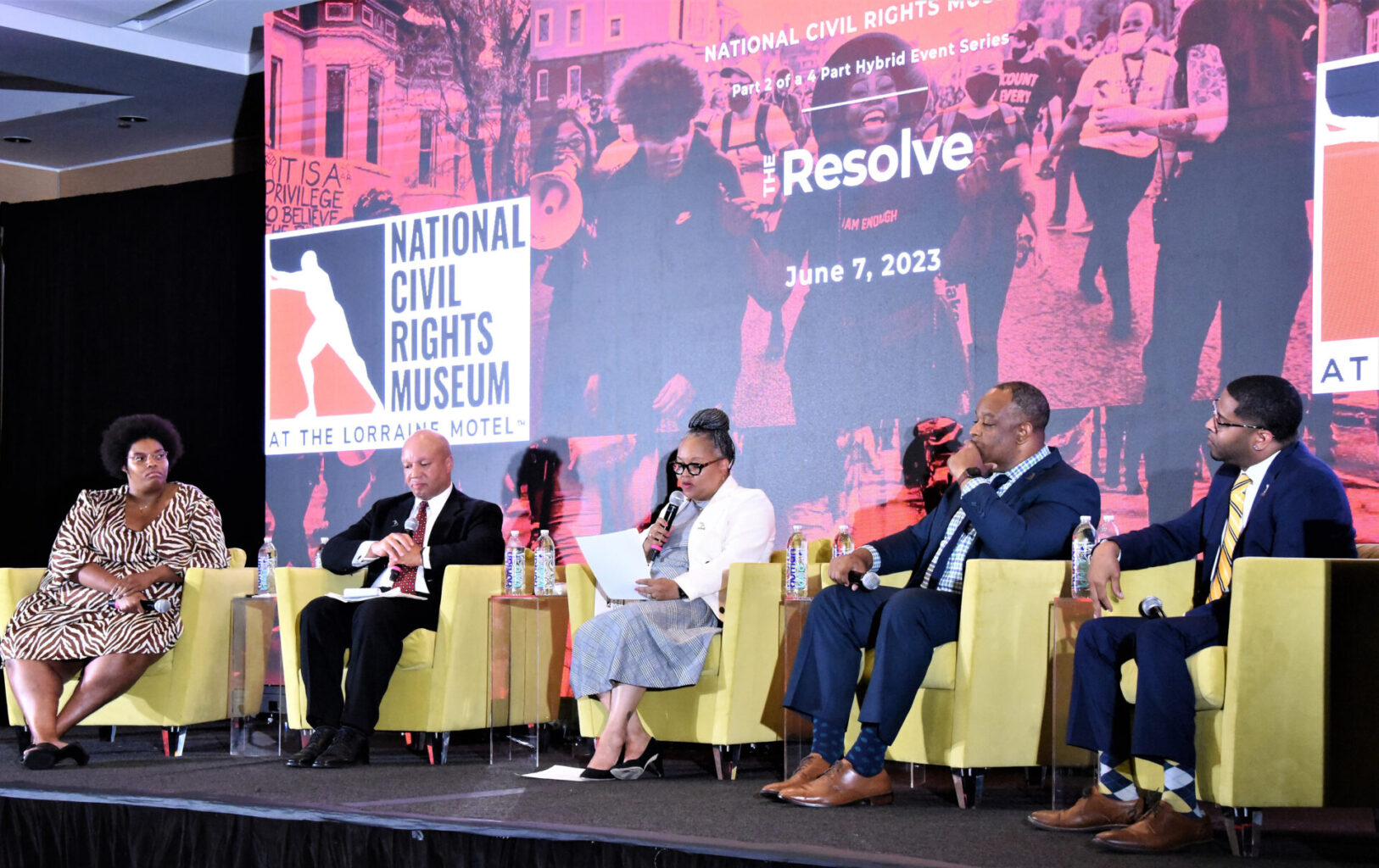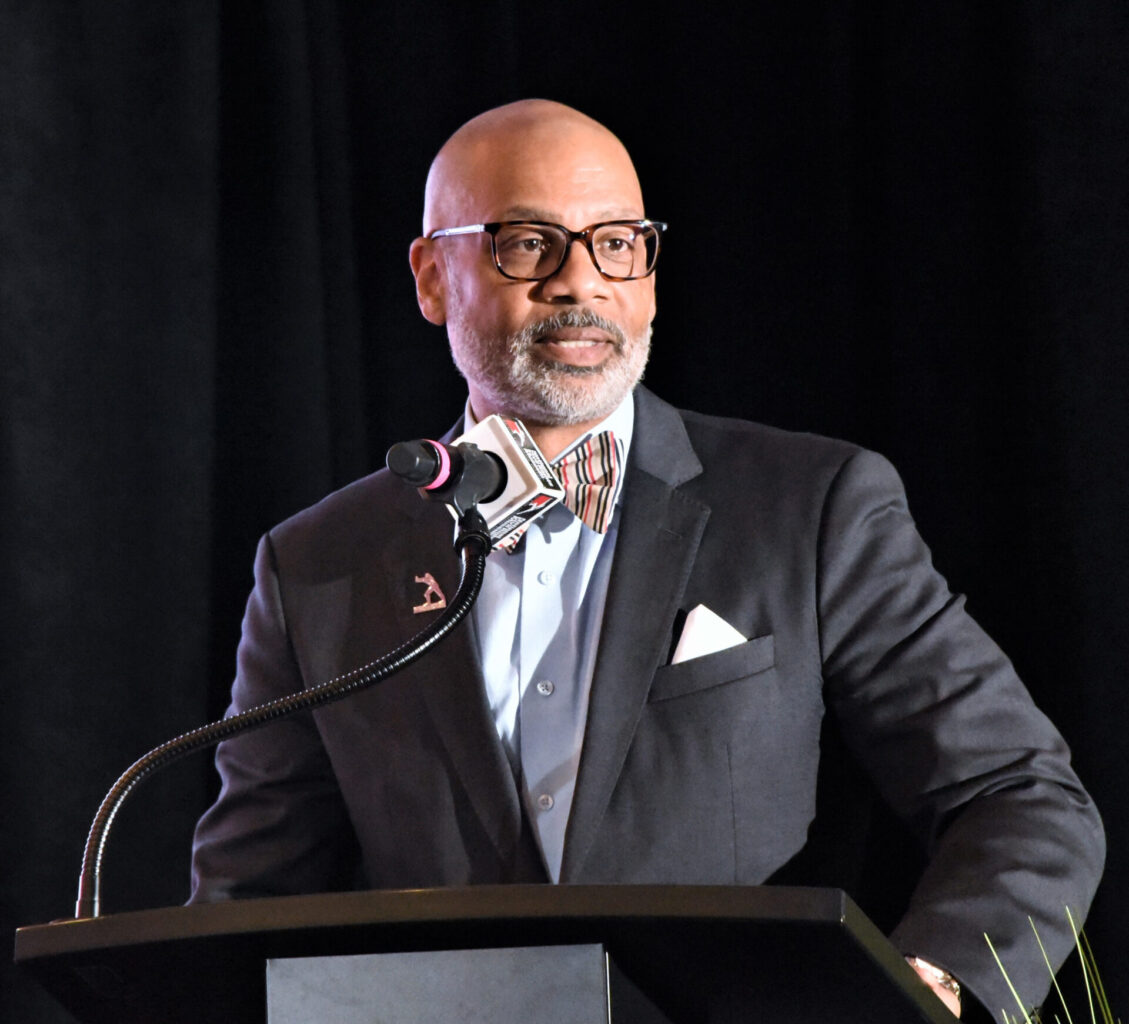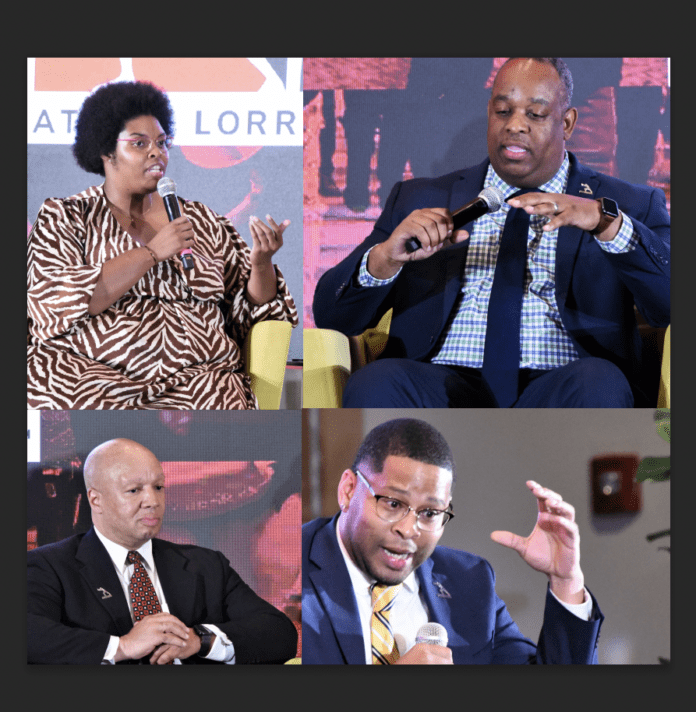A lively discussion about policing in the 21st century and its impact on people of color dominated the second installment of the National Civil Rights Museum series on race, policing, and criminal justice.
The June 7 event, titled “The Resolve: Eliminating Systemic Racism and Toxic Cultures,” was moderated by Deidre Malone, a former Shelby County commissioner, and founder, president and CEO of the Carter Malone Group public relations firm.
The Series is taking place as Memphis and cities across the nation grapple with continuing incidents in which Black and brown citizens are brutalized by police officers during incidents that normally should not lead death or bodily harm, especially during pretextual police stops for nonserious reasons.
The Jan. 7 fatal bludgeoning of Tyre Nichols by Memphis police officers after he was stopped allegedly for driving recklessly is emblematic of the issue. Nichols died from his injuries Jan. 10. MPD Chief Cerelyn “CJ” Davis, said investigators found no indication that Nichols was driving improperly.
Panelists for this edition of the four-part series were:
- Dr. De Lacy Davis, an activist, author, and founder of the community-based organization Black Cops Against Police Brutality (B-CAP).
- Dr. Howard Henderson, professor of criminal justice and founding director of the Center for Justice Research at Texas Southern University. His research focuses on structural and cultural predictors of criminal justice system disparities.
- Memphis political strategist and activist Amber Sherman. She has been featured on MSNBC, VICE News, Revolt, The Washington Post, BBC, and NBC. Sherman also advocates through her blog and podcast “The Law According to Amber.”
- Ryan Jones, the NCRM’s historian and curator for validating interpretation and reviewing scholarly content shared by the museum.

About 300 people attended the event, which got under way when Malone posed a series of questions that examined the detrimental practices of 21st-century policing, including how and why policing evolved into what America is witnessing today.
Responses were disquieting as panelists cited the era of slavery as the place where policing began.
“I think the reality is that policing as we see it today looks very much like it did 200 years ago,” Henderson said. “We know that less than six percent of the population commits crime. But policing was created to control the masses of our community, which is what they still do.”
Davis offered a more scathing perspective.
“I don’t think policing has evolved, but I think it has devolved, that is, it has gone back,” Davis said.
Davis continued, “Sir Robert Peel (the mid-1800s British prime minister, who is considered the father of public organized policing and crime prevention) wrote the nine principles of policing.
“One was ‘the public is the police, and the police is the public.’ But in his perception, policing did not include Black people. Therefore, all these former slaves are running amuck. What do we do with them? So, we see policing used then and now to kill, destroy, and maim black and brown bodies.”
Sherman denounced “over-policing of Black and brown communities” in Memphis.
“I agree with Professor (Henderson) that policing or patrolling started on the premises that we were somehow less than human,” said Sherman. “Black people are stripped of humanity, and law enforcement sees us as inhuman, like so many cattle they have to control and surveil…That concept has advanced even more with advancements in technology.
Sherman added, “Sky cams and drones are being used to watch us. The MPD (Memphis Police Department) just asked the County Commission for 10 drones to be budgeted for them. What do we need a drone for? Technology is being used as a means of controlling and over-policing black communities.”
Jones, a millennial scholar who is working on dual masters and doctorate degrees at the University of Memphis, talked about “having the talk.
“When we ask the question, ‘Do you trust the police?’ said Jones, “you have to consider when answering if African Americans were growing up sometime in post-20th-century America.
“When do you have that talk? Do you have that talk as a 16-year-old? Do you have that talk at 29? Do you have that talk at 10?”
Jones added, “You have to question yourself and look at the past of the distrust and corruption from police violence on Black and brown bodies.
“Until we reconcile and acknowledge that many things have happened and the lack of justice afterwards, we are going to continue recycling these things, going back to the enslavement of Africans.”
Malone and panelists also talked about a “toxic police culture” that included an “ideology of whiteness,” which they said plays a pivotal role in how officers police “Black and brown people.

Also, a police culture generates a “warrior mentality” that may cause officers to view those they serve as enemies rather than civilians. And a police subculture that creates a lack of trust in law enforcement. Officers, they concurred, have a “skewed” commitment to the communities they are sworn to protect and serve. “The Blue Wall of Silence” is an unspoken pact between officers to not expose or “rat out” another officer for misconduct.
NCRM President Russell Wigginton called the evening’s discussion “important and meaningful.”

The remaining series are “The Restoration: Community Healing Toward Solutions,” on Sept. 6, 2023, and “The Resilience: National Symposium, slated for Feb. 22, 2024. All segments are live streamed.



